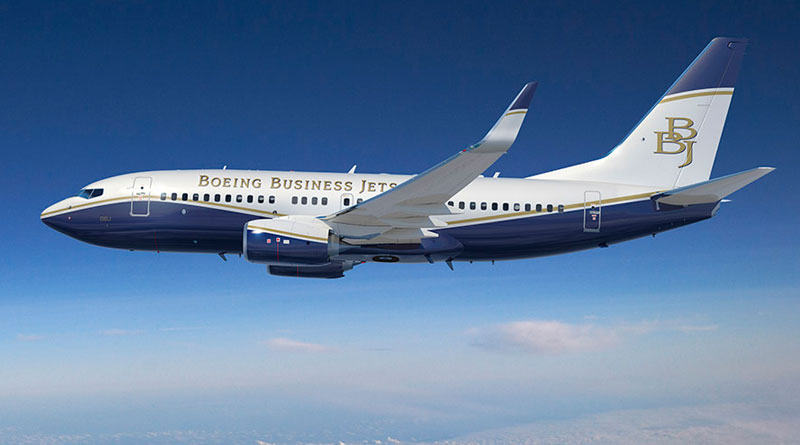Boeing CEO Addresses the Ethiopian Airlines Flight 302 Preliminary Report
Dennis offered sympathies to the loved ones of the passengers and crew on board Lion Air Flight 610 and Ethiopian Airlines Flight 302
The Ethiopian Airlines investigation into the March 10 Boeing 737 Max 8 jet crash revealed striking similarities with the crash of a Lion Air 737 Max 8 which occurred in October 2018. The preliminary investigation released on April 4, shows both crashes linked to a new flight control system that the American aviation giant installed on the Max series of jets, known as Maneuvering Characteristics Augmentation System (MCAS).
The Boeing 737 jet crashed just after taking off from the Ethiopian capital Addis Ababa, resulting in the death of all the 157 passengers and crew on board. The airlines around the world have grounded Boeing Max jets as the investigations continue. The Ethiopian officials have claimed the initial report clearly points out that its pilots followed the guidance provided by Boeing and approved by the FAA.
In light of the developments, the Boeing CEO Dennis Muilenburg issued a statement after the preliminary report into the crash was made public.
The statement:
“We at Boeing are sorry for the lives lost in the recent 737 MAX accidents. These tragedies continue to weigh heavily on our hearts and minds, and we extend our sympathies to the loved ones of the passengers and crew on board Lion Air Flight 610 and Ethiopian Airlines Flight 302. All of us feel the immense gravity of these events across our company and recognise the devastation of the families and friends of the loved ones who perished.

The full details of what happened in the two accidents will be issued by the government authorities in the final reports, but, with the release of the preliminary report of the Ethiopian Airlines Flight 302 accident investigation, it’s apparent that in both flights the Maneuvering Characteristics Augmentation System, known as MCAS, activated in response to erroneous angle of attack information.
The history of our industry shows most accidents are caused by a chain of events. This again is the case here, and we know we can break one of those chain links in these two accidents. As pilots have told us, erroneous activation of the MCAS function can add to what is already a high workload environment. It’s our responsibility to eliminate this risk. We own it and we know how to do it.
From the days immediately following the Lion Air accident, we’ve had teams of our top engineers and technical experts working tirelessly in collaboration with the Federal Aviation Administration and our customers to finalise and implement a software update that will ensure accidents like that of Lion Air Flight 610 and Ethiopian Airlines Flight 302 never happen again.
We’re taking a comprehensive, disciplined approach, and taking the time, to get the software update right. We’re nearing completion and anticipate its certification and implementation on the 737 MAX fleet worldwide in the weeks ahead. We regret the impact the grounding has had on our airline customers and their passengers.
This update, along with the associated training and additional educational materials that pilots want in the wake of these accidents, will eliminate the possibility of unintended MCAS activation and prevent an MCAS-related accident from ever happening again.
We at Boeing take the responsibility to build and deliver airplanes to our airline customers and to the flying public that are safe to fly, and can be safely flown by every single one of the professional and dedicated pilots all around the world. This is what we do at Boeing.
We remain confident in the fundamental safety of the 737 MAX. All who fly on it—the passengers, flight attendants and pilots, including our own families and friends—deserve our best. When the MAX returns to the skies with the software changes to the MCAS function, it will be among the safest airplanes ever to fly.
We’ve always been relentlessly focused on safety and always will be. It’s at the very core of who we are at Boeing. And we know we can always be better. Our team is determined to keep improving on safety in partnership with the global aerospace industry and broader community. It’s this shared sense of responsibility for the safety of flight that spans and binds us all together.
I cannot remember a more heart-wrenching time in my career with this great company. When I started at Boeing more than three decades ago, our amazing people inspired me. I see how they dedicate their lives and extraordinary talents to connect, protect, explore and inspire the world — safely. And that purpose and mission has only grown stronger over the years.
We know lives depend on the work we do and that demands the utmost integrity and excellence in how we do it. With a deep sense of duty, we embrace the responsibility of designing, building and supporting the safest airplanes in the skies. We know every person who steps aboard one of our airplanes places their trust in us.
Together, we’ll do everything possible to earn and re-earn that trust and confidence from our customers and the flying public in the weeks and months ahead.
Again, we’re deeply saddened by and are sorry for the pain these accidents have caused worldwide. Everyone affected has our deepest sympathies.”


